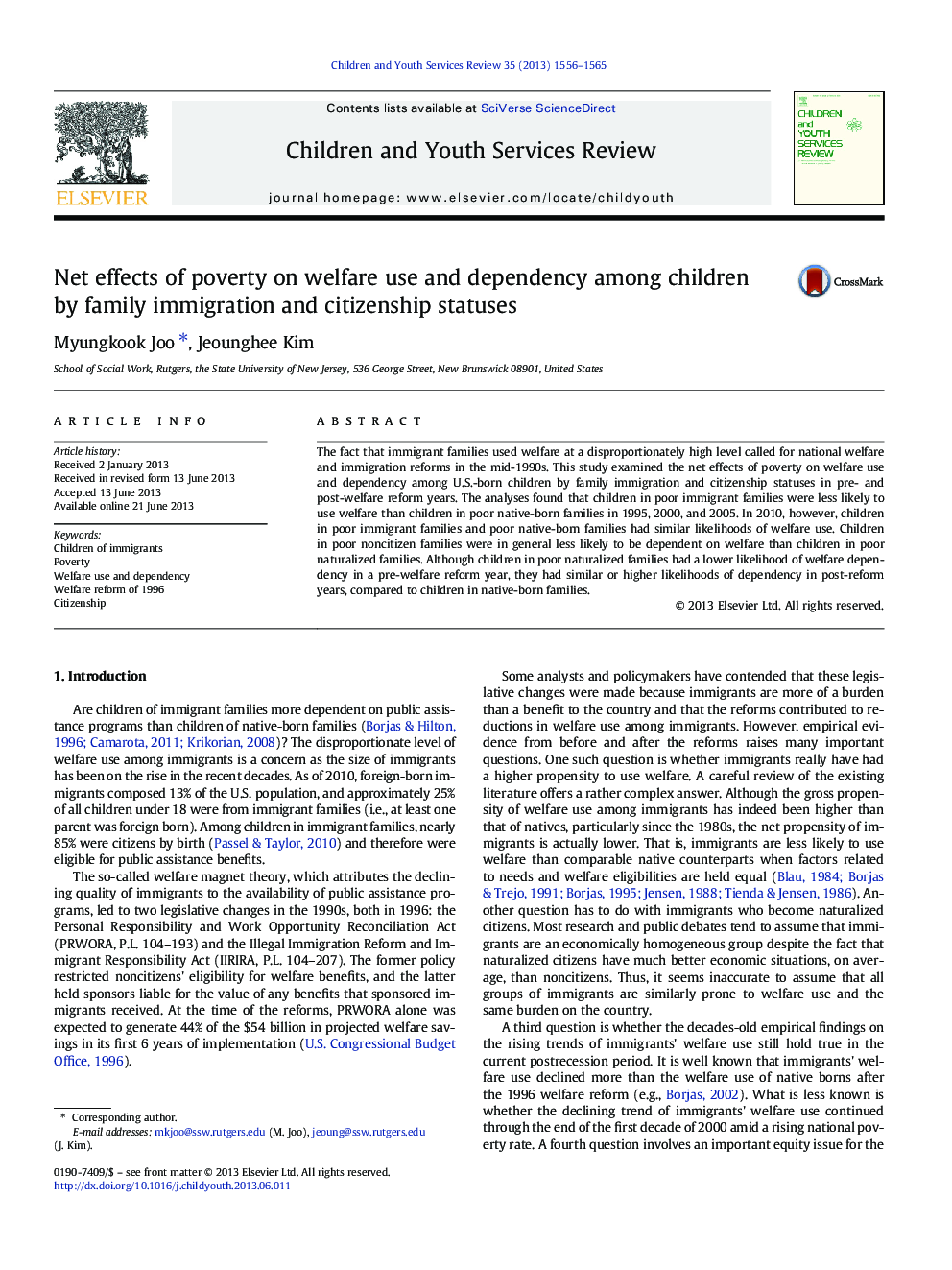| Article ID | Journal | Published Year | Pages | File Type |
|---|---|---|---|---|
| 10311624 | Children and Youth Services Review | 2013 | 10 Pages |
Abstract
The fact that immigrant families used welfare at a disproportionately high level called for national welfare and immigration reforms in the mid-1990s. This study examined the net effects of poverty on welfare use and dependency among U.S.-born children by family immigration and citizenship statuses in pre- and post-welfare reform years. The analyses found that children in poor immigrant families were less likely to use welfare than children in poor native-born families in 1995, 2000, and 2005. In 2010, however, children in poor immigrant families and poor native-born families had similar likelihoods of welfare use. Children in poor noncitizen families were in general less likely to be dependent on welfare than children in poor naturalized families. Although children in poor naturalized families had a lower likelihood of welfare dependency in a pre-welfare reform year, they had similar or higher likelihoods of dependency in post-reform years, compared to children in native-born families.
Related Topics
Health Sciences
Medicine and Dentistry
Perinatology, Pediatrics and Child Health
Authors
Myungkook Joo, Jeounghee Kim,
